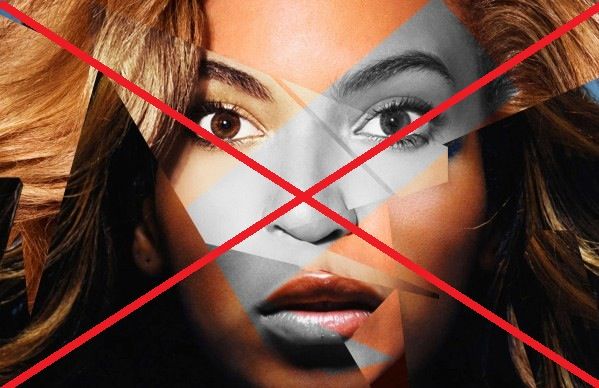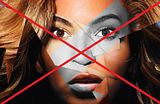When Some of Us are Supported and Others are Shamed

by Nneka M. Okona
There is nothing more radical and revolutionary than a Black woman committed to loving herself fully, and being true to herself and her journey. It is especially inspiring if that woman is a celebrity, as she can be a role model for other women to do the same.
Beyoncé Giselle Knowles-Carter is an example of this. Although she is a great example of a successful Black woman, she is still seen as a polarizing subject. Mention Queen Bey and you’re sure to either hear the exclamations of her devoted “Beyhive,” or the mutterings of people who can’t stand her. There is rarely an in-between in terms of Bey, especially in the opinions of Black women.
Many people feel it’s OK to hate on Beyoncé, because they have grown tired of her being everywhere and doing everything. But this sentiment appears to be part of a larger issue altogether: Why does it seem like Black women have such a hard time supporting one another, especially when it comes to those in the spotlight?
It seems that support and encouragement are often reserved for women who are not too assertive or self-confident. And she most definitely cannot express her sexuality openly. We reserve our praise of each other for women we have deemed “respectable,” however narrow that idea of respectability may be. If her image veers too much out of these qualifications, the daggers start to fly.
But going deeper, we see the divisiveness between Black women has historical roots. We have been trying to “one-up” each other in terms of what a “real” Black woman is for centuries, with our debates over lighter vs. darker skin, natural hair vs. straight hair, wearing one’s own hair vs. wearing wigs or weaves, curvy girls vs. skinny girls, and so forth. It seems like our competitiveness with one another never ends.
This all comes from the multitude of messages ingrained in our psyche as Black women from the moment we are born. We are told we are inferior. We are told that our bodies are only objects for other people’s sexual desire to be projected onto. The world is constantly sending us these hateful messages. So what do we do? We internalize them, and then project this hate onto our sisters. This makes sense, but it still saddens and bewilders me.
I’m puzzled because I know it can be different. I know that despite the many things working against us, we can (and have) done better in terms of being there for one another. I draw so much strength from my fellow Black women. My strongest supporters and my closest confidantes are all Black women. Black women are my pillars of strength and my soul sisters. I know from my personal experience that we can (and do) offer each other unconditional support.
What will it take for us to extend this same support and love to each other outside of our immediate circles, especially since we live in a world that does not readily offer us love and support from others? We are reminded daily that most people do not believe Black women and our lives matter. But we do matter. Yes, Black women matter. And so, it also matters that we uplift and champion each other. in a world bubbling with so much hatred, misunderstanding, and disrespect towards us, we must be each others’ strength.
Because if we don’t, who will?
Nneka M. Okona is a writer based in Washington, DC. Visit her blog, www.afrosypaella.com, her website, about.me/nnekaokona or follow her tweets, @NisforNneka.

No comments: